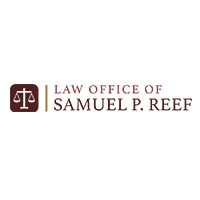White Horse Beach DUI-DWI Lawyer, Massachusetts
Sponsored Law Firm
-
 x
x

Click For More Info:
-
Adam P. Beck, M.D., Esq.
25 Marston St Suite 303 Lawrence, MA 01841» view mapAccident & Injury Law Legal Expertise You Can Rely On
By working with lawyers who are also doctors, clients can benefit from advocates who have a deeper understanding of their physical injuries, medical needs, and prognoses.
800-383-8491
Samuel P. Reef
✓ VERIFIEDSamuel Reef is a practicing lawyer in the state of Massachusetts. He received his J.D. from Suffolk University Law School in 1994. He currently works ... (more)
Michael P. Carroll
✓ VERIFIEDBoth my life experiences and professional experiences contribute to my ability to be an effective and compasionate advocate. Prior to the practice of ... (more)
Joseph Simons
✓ VERIFIEDI help people in all walks of life, from doctors to CEOs to blue-collar workers. Whoever you are, if you're facing criminal charges, everything else ... (more)
Christian T. Baillet
✓ VERIFIEDChristian T. Baillet is a practicing lawyer in the state of Massachusetts handling criminal defense matters.
FREE CONSULTATION
CONTACTFREE CONSULTATION
CONTACTPaul Michael Sahady
FREE CONSULTATION
CONTACTFREE CONSULTATION
CONTACTFREE CONSULTATION
CONTACT Adam Beck Lawrence, MA
Adam Beck Lawrence, MA AboutAdam P. Beck, M.D., Esq.
AboutAdam P. Beck, M.D., Esq. Practice AreasExpertise
Practice AreasExpertise




